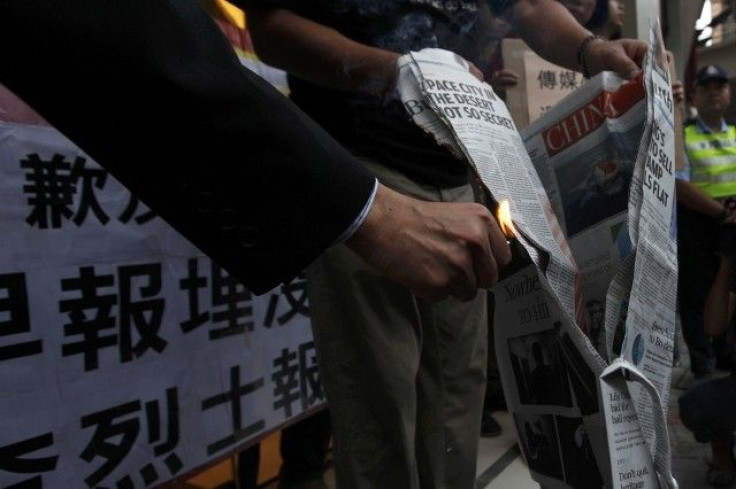China Cracks Down On Local Journalists

China's government warned Chinese journalists to refrain from transmitting information to foreign media or to domestic media where they are not employed, the New York Times reported Thursday.
The notice by China's State Administration of Press, Publication, Radio, Film, and Television (SARFT), which regulates media in the country, follows a previous edict, issued in April 2013, that bans Chinese journalists from publishing information online without permission from their employers.
The new regulations, while directed toward domestic journalists, mark another milestone in the Communist Party’s struggle to control foreign news reporting in China. In 2012, after the New York Times and Bloomberg published investigations into the wealth of then-Premier Wen Jiabao and then-Vice President Xi Jinping, respectively, the Communist Party firewalled both websites and limited visa access for the companies’ reporters. And in 2013, Bloomberg allegedly spiked a similar investigation into Chinese wealth out of concern that Beijing would punish the company’s lucrative terminal business.
Restrictions placed on Chinese journalists will likely make it more difficult for their foreign counterparts to gather information. Because domestic media in China is heavily censored, reporters often provide tips, sources and other information to foreigners unbound by similar restrictions.
“The advantage of foreign media has been uncovering news that cannot possibly appear in the Chinese press," said Vincent Ni, a former correspondent for Caixin, a respected Chinese business magazine. “Clues to many stories come from talented, frustrated Chinese reporters.”
Chinese journalists operate in a tense, risky atmosphere where the threat of harassment -- even arrest -- is constant. Reporters for the Southern Weekend, China’s most liberal investigative newspaper, were imprisoned for uncovering the shourong, a secret network of detention centers subsequently abolished by Wen Jiabao. Chinese news assistants working directly with foreign reporters encounter intimidation and harassment far worse than the foreigners themselves. Zhao Yan, a New York Times assistant, served a two-year prison sentence for fraud, charges his supporters considered spurious.
“It is as if there is a circle of fire around correspondents -- one that protects the reporter but threatens anyone they come near,” wrote the Guardian’s Jonathan Watts in a 2008 essay.
Despite the proliferation of social media platforms in the country -- Sina Weibo, China’s Twitter, has over 500 million users -- the Communist Party arguably exercises tighter control of information than at any point in the last quarter century. Ni believes that the new regulations will remove an incentive for journalists to cooperate with foreign counterparts.
“The move will inevitably cause a chilling effect to Chinese reporters who network with foreign journalists in China,” said Ni.
“For China’s ongoing reform, I don’t think it’s good at all.”
© Copyright IBTimes 2024. All rights reserved.












